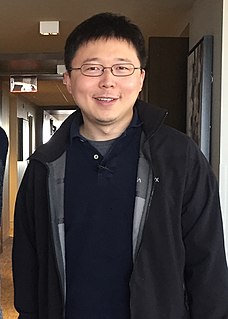A Quote by Tim Berners-Lee
Web pages are designed for people. For the Semantic Web, we need to look at existing databases.
Related Quotes
Once you understand that everybody's going to get connected, a lot of things follow from that. If everybody gets the Internet, they end up with a browser, so they look at web pages - but they can also leave comments, create web pages. They can even host their own server! So not only is everybody consuming, they can also produce.
































